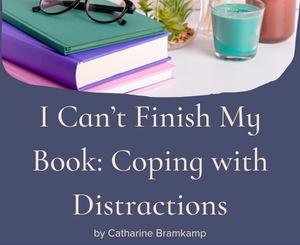How You Can Use SEO To Generate More Traffic To Your Author Site by Victoria Greene

Credit: Pixnio
Today we welcome a new guest writer to Writer’s Fun Zone, Victoria Greene who is stopping by to chat with us today about “How You Can Use SEO To Generate More Traffic To Your Author Site.” Enjoy!
***
You know your writing is great, and you’ve nailed your social media strategy and referral program. Tick aaaand tick.
What about your SEO strategy? Is organic search really relevant to you?
Well, if you’ve got a blog or a website, then making the most of it with SEO makes perfect sense. Thoughtful blog posts allow new readers discover you, and good SEO rankings will bring you more authority (and potential sales).
SEO for authors is often part of a wider personal branding exercise, as it helps build your online footprint. Learning more about SEO should 100% help you improve your digital strategy across the board — here’s how.
What Is SEO?

Credit: Google
SEO is Search Engine Optimization. Put simply, it’s about how well your site meets the criteria that search engines (such as Google, Bing, and Yahoo) employ when they produce results to a search made by a user (your audience).
As an example, when you search for writing tips, Google shows results of the sites which best match what it believes you want from your search:
SEO is the tactic that you use in order to make sure that your site ranks as highly as possible for relevant searches. It’s also about ensuring that the topic of your site closely matches your commercial goals.
What are ranking factors?
SEO uses 2 principal factors to rank your site:
Authority: “how trustworthy or valuable a page is.”
Relevance: “how appropriate a given page is for a given query.”
In order for your author site to be SEO optimized, it must be both relevant and authoritative for the search queries that you hoping to rank for.
How to make your content SEO friendly
You and I both know that you write quality content – it’s a given – and this is hugely beneficial to the SEO of your site, with 72% of marketers advising that relevant content is the most effective SEO tactic.
However, writing high quality content is not the same as writing content that is SEO friendly, and there a number of things that can you can do to really optimize the content on your site.
Use Google’s Keyword Planner to find out what keywords your audience is using and then incorporate them into your content.
This will improve your SEO because one of the factors that search engines take into account is the language used by searchers – by using their language you are telling Google and its peers that your author site is where your audience want to be, increasing the traffic to your site.
David Gaughran is a great example of how a simple WordPress blog can grow a huge audience through creating consistently good content. He’s got almost 70,000 people on his mailing list, over 3000 keywords in Google, and a ton of monthly search traffic.
As well as prominently displaying his books in the sidebar, David commentates on the ebook publishing industry, and sets writing prompts in order to engage his readership.
It’s a great example of how putting a lot of effort into your author site or blog can definitely pay off, and give you more independence as an author outside of platforms like Amazon, Goodreads, and Bookbub.
At the same time, being visible on other platforms and marketplaces is also a good way to boost your overall site authority (as long as link you back to your website).
How to maximize your site‘s SEO
Having a carefully-crafted site can also improve the SEO-value of your content, raise your social media authority, and help your brand as a whole develop a more influential online presence.
One of the quickest SEO wins for your site is to make sure your web pages are optimized from a technical SEO perspective. There are a few things that you can do to make sure your web pages are SEO friendly:
URLs
Keep them short and sweet. Google is on record as saying that 3-5 words in a URL hold greater sway than those pages with lengthy URLs.
Title tag
No other on-page SEO factor is more important that this. Your title tag is a piece HTML code that tells search engines what the topic of the page is.
To optimize your title tags, I recommend you put the keyword you’re aiming to rank for as close to the start of your title tag as possible.
In WordPress, this is an easy two-minute job. All your need is the free plugin Yoast which allows you to quickly edit the title tags of every single web page. Just go and scroll down to the the Yoast editor on the page in question and make it as memorable and compelling as possible. Think about the keywords that people are likely to type into Google to find your content.
 Yoast also gives you free and easy to follow SEO advice (pictured below).
Yoast also gives you free and easy to follow SEO advice (pictured below).
Don’t get overwhelmed and try to tackle all onpage SEO elements at once — focus on important things like title tags and readability first.
Site speed
Slower sites tend to not do as well as fast-loading sites. If you have built your author site using a proprietary closed source CMS, then your loading speed will be largely managed by the company whose platform your site has been built with as they will manage your hosting and technical environment.
However, if you have built your own site on an open source CMS, had a custom site built, or purchased a pre-existing site, then you may need to manage your own site speed and hosting arrangements. Run some audits and site speed checks to be sure.
There are plenty of ways that you can increase the speed of your site and you can find them in this helpful guide.
Links
Search engines use links to establish the value of your content and to determine the relationship between the content on your site.
Including links to quality external sites helps search engines to gain greater clarity on the topic of your site’s pages. But not only this. Outbound links also demonstrate the quality of your site to search engines.
Inbound links help establish your site’s authority and context in the niche.
 Being included in a roundup like this one from Fast Company would be a great authority booster (Fast Company is a powerful & relevant website).
Being included in a roundup like this one from Fast Company would be a great authority booster (Fast Company is a powerful & relevant website).
Being visible on the author community, hanging out on social media, and talking to journalists are all great ways of increasing your likelihood of being featured in industry roundups.
Being an industry figure, as well as a writer, 100% improves your chances of getting meaningful backlinks.
You can also reach out to people in the hope of a guest post that highlights your experiences or authority. This can be easily done over email or social media, but make sure you offer up something of real value to the target audience.
The value of SEO
The higher you rank the sooner your audience will see your site – first page sites receive 91.5% of Google traffic and 35% of organic clicks are taken by the top three ranking sites for a relevant Google search.
Organic searches are responsible for up to 64% of your website traffic and SEO underpins these searches. By following the advice mapped out in my article you will make your author site more SEO friendly and, in doing so, will increase the traffic to it.
SEO is also a great market research tool. Keyword research shows you exactly what people are typing into Google. It can give you an idea of the current market for your books, and even for the themes and topics that are on your audience’s mind right now.
Use SEO as another string to your authorly bow, and make the most of any blogging or online content activities by optimizing your copy.
Seek out relevant sites to be featured on, and contribute to the author community in order to solidify your personal brand. SEO isn’t something you’ll be able to master overnight, but the basics of good search engine rankings are easy to gras.
Create great content, keep your audience in mind, and contribute positively to the community and you will be well on your way!
***
ABOUT THE AUTHOR
 Victoria Greene is a branding expert and a writer who blogs at Victoria Ecommerce. On there she regularly shares writing tips and insights for those looking to make the most of their online brands. As a writer herself, she knows all about the importance of quality content and SEO.
Victoria Greene is a branding expert and a writer who blogs at Victoria Ecommerce. On there she regularly shares writing tips and insights for those looking to make the most of their online brands. As a writer herself, she knows all about the importance of quality content and SEO.







